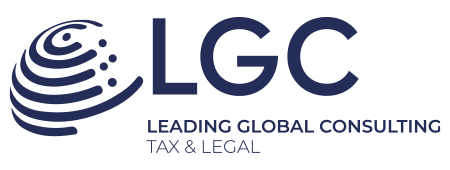Order PCM/825/2023, which entered into force on July 22, defines the criteria that will be evaluated by the National Innovation Company (ENISA) to determine which companies can benefit from the tax aid and benefits of Law 28 /2022, of December 21, promoting the ecosystem of emerging companies, also known as the Start Ups Law (hereinafter, ”the Law” or ”Start Ups Law”).
- THE ADVANTAGES OF THE APPROVAL OF THE START UP LAW
If they comply with the requirements of the Start Up Law and the recent Order, the companies in question may benefit from tax and labor benefits and the simplification of administrative procedures, among others.
The tax advantages provided for in articles 7 and 8 of the aforementioned Law are the following:
- A reduction of up to 15% in the rate to be paid by companies considered “emerging” in Corporate Tax, if the tax base is positive in the first tax period. In addition, if they maintain the “emerging” status, this reduction will also be applicable in the three next years.
- Deferral of tax debts without accrual of interest, for a period of twelve months in the Corporate Tax and six months for the Personal Income Tax of non-residents, in the first two years in which the tax base is positive
- The maximum deduction base for those who invest in Start Ups was increased, as well as the type of deduction. An additional advantage for founding partners is access to said deduction regardless of the ownership percentage they hold over the entity’s share capital. To benefit from this deduction, however, it is an essential requirement that the company’s funds do not exceed 400,000 euros at the beginning of the tax period in which the taxpayer acquires the shares
- The taxation of the delivery of shares to workers and stock options , raising the exemption up to €50,000 per year of remuneration in kind as part of the company’s remuneration policy.
- In general, the term for subscribing shares was raised from three to five years, counting from the constitution of the entity, even up to seven years for companies dedicated to biotechnology, energy, industrial and other strategic sectors.
The Law also incorporates labor incentives, establishing a special tax regime applicable to workers, professionals, entrepreneurs and investors displaced to Spain, so that they may choose to pay IRNR (Personal Income Tax of non-residents) maintaining the status of IRPF taxpayers (Personal Income Tax of residents), during the six periods following taxes, including the period in which the move to Spain is made. And not only the taxpayer can take advantage of this special tax regime, but also his spouse and children under twenty-five years of age, or whatever their age in case of disability.
The obligation to register in the Special Regime for Self-Employed Workers for three years is also eliminated, if the entrepreneur is an employee in another company and, for that reason, would be in the Pluriactivity Regime.
Article 3 even provides for serial entrepreneurship, that is, that the autonomous person who has undertaken and whose project has not been successful, can try again without limitation.
To finish with the benefits of the approval of the aforementioned norm, it is important to highlight its article 12, which provides for the creation of emerging companies by telematic means in a period of between 6 hours and 5 days, being exempt from the payment of fees for the registration in the Mercantile Registry. And even for those investors who are natural persons of foreign nationality, they may request a tax identification number from the Tax Agency without having to obtain a foreigner identity number, a procedure that would slow down the process.
- THE REQUIREMENTS FOR START UP CERTIFICATION
The company that intends to benefit from the startup regime must prove the following requirements, detailed by the recent order PCM/825/2023:
- Be newly created or whose registration in the Mercantile Registry does not exceed five years– this is the case in the case of biotechnology, energy, industrial and other strategic sector companies or that have developed their own technology, designed entirely in Spain-.
- They must have their domicile, registered office or hAve a permanent establishment in Spain.
- That the annual turnoverof the company does not exceed the value of ten million euros.
- The applicant company will not be able to access the certification if it has been created as a result of a merger, spin-off, concentration, segregation or transformationof companies that are not considered emerging.
- Not having distributed or distributed its profits nor being listed on regulated markets.
- 60% of the employee workforce must have an employment contract in Spain.
- Innovative entrepreneurship project that has a scalable business model. The certifying entity will appreciate the innovative character if, at least, the applicant meets some of the following characteristics:
- That the Expenses in research, development and technological innovation represent at least 15% of the company’s total expenses during the two previous fiscal years, or, in the previous fiscal year in the case of companies less than two years old.
- It will be valued to have received public financing for the development of R&D projects or innovative entrepreneurship in the last three years, without having been revoked due to incorrect or insufficient execution of the financed activity
- If the company enjoys discounts on Social Security contributions for having hired research staff
- That the company provide a motivated report issued by the Ministry of Science and Innovation, regarding its high degree of innovation, or that it has an Innovative SME Seal granted by the Ministry of Science and Innovation.
- That the company has a Young Innovative Company Certification issued by AENOR (EA0043), an Innovative Small or Microenterprise Certification issued by AENOR (EA0047) or Certification in accordance with the UNE 166.002-R+D+i management system.
Even without being able to prove any of these requirements, it may also be considered an innovative venture if the business plan presents technological innovation, either in development or exploitation, and that may be protected by industrial property rights (excluding trademarks and trade names) or other rights such as software or protected know-how, all of them related to the business model of the requesting company. Also, when ENISA appreciates innovation in products, processes, services and/or business models.
However, the innovative nature of the business is not enough. Additionally, the applicant must prove that it is a scalable enterprise. If the growth potential is not proven, the application will be rejected. To this end, CENISA will assess the following aspects:
- Supply and demand will be assessed, as well as the growth of these in the sector in which the applicant company operates, the strategies for attracting users or customers, the sensitivity of demand to the economic cycle, entry barriers, among others
- The implementation of prototypes and obtaining a minimum viable product or placing the service on the market will be valued. As well as the position of the applicant company in the market, whether or not its products or services are on the market, how long have they been on the market or how long will it take to reach the commercialization phase, their volume of customers or their degree of concentration.
- The competence and distinctive character of the applicant company with respect to other competitors will also be taken into account, as well as the experience and training of the team that makes up the applicant, both previous experience in other companies and related sectors of the management team, as well as the solvency and trajectory of the partners
- Contracts will be analyzed with suppliers, suppliers and rental contracts and the companies and/or professionals that provide services to the applicant, as well as their importance in the production process.
In any case, it will be direct proof of growth potentiality – or scalability – if the applicant company shows that it has signed one or more credit policies with ENISA in the last three years, provided that one of them is in force and there are no incidents on it.
- CONCLUSIONS
In conclusion, the new order defines the criteria to evaluate the characteristics required by Law 28/2022, of December 21, the necessary procedural measures for the correct compliance with the process for the certification of companies as emerging companies, as well as the procedure of loss of effect of the certification. In this way, one of the purposes pursued by the Spanish legislator is achieved: to speed up the bureaucratic process to create startups and encourage investment and entrepreneurship.
Leading Global Consulting supports the promotion of the creation of start- ups, taking on the management of the certification process before the ENISA authorities for those entrepreneurs seeking to launch their innovative business project on the market, and we are at clients’ disposal to discuss any aspect that may be of interest in relation to this publication.
For further information, please contact us at [email protected].
Ana Desirée Batiste Molino
LGC




